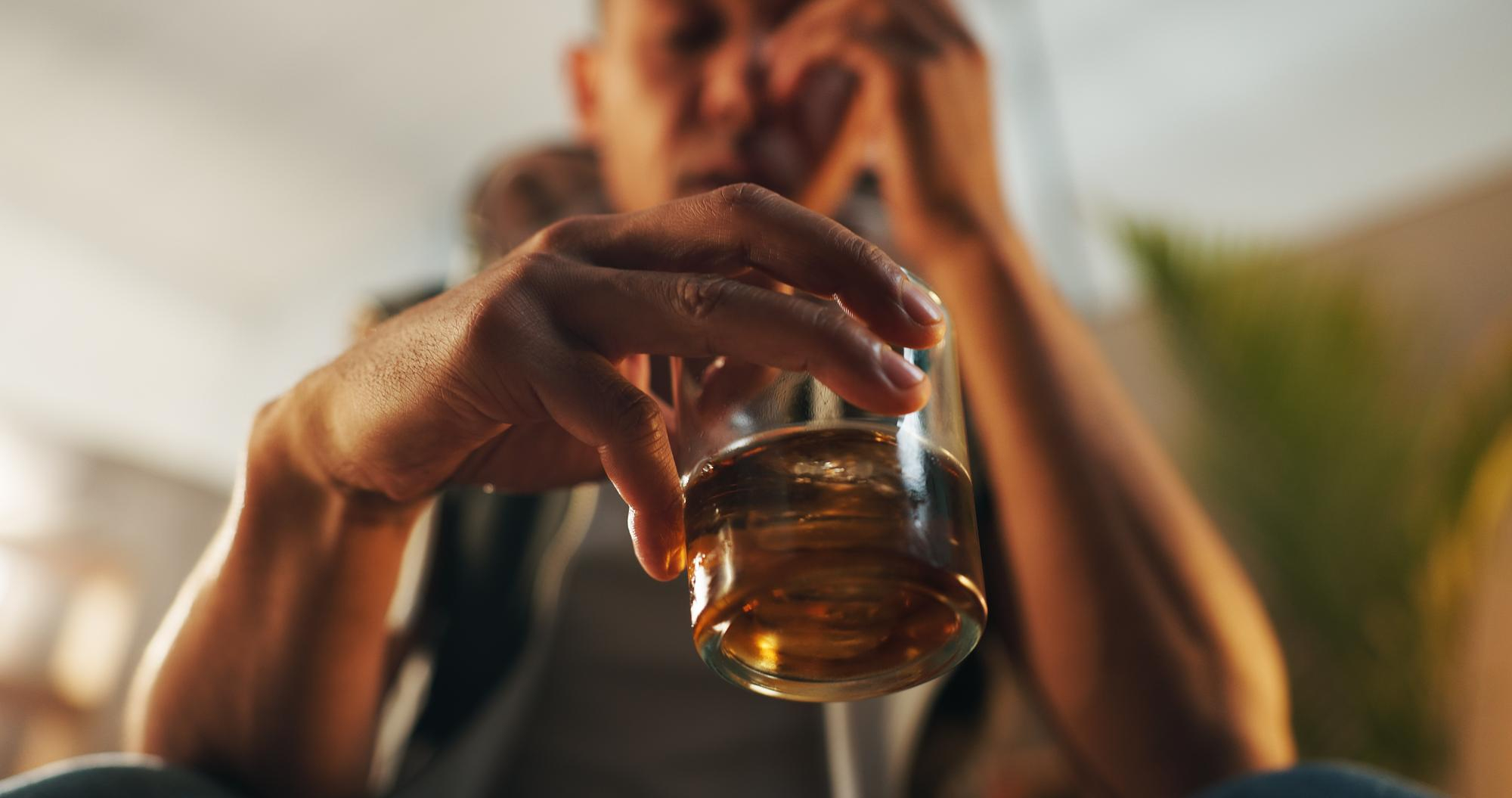It’s a question more people are asking themselves than you might think: “Is my drinking making me depressed?” The relationship between alcohol and depression is complex — and deeply intertwined. If you’ve noticed that your mood sinks after drinking, or that alcohol feels like both an escape and a trap, you’re not alone.


Alcohol and Depression: A Two-Way Street
Research shows a strong connection between alcohol use and depression, and it goes both ways. People with depression are more likely to drink heavily, and heavy drinking increases the risk of developing depression. In fact, people with alcohol use disorder (AUD) are twice as likely to experience major depressive disorder compared to the general population [1].
Alcohol is a central nervous system depressant. That means it slows brain function, impairs judgment, and dampens emotional regulation — often leading to feelings of sadness, guilt, or hopelessness. These effects can linger long after the buzz wears off, especially when drinking becomes regular or heavy.
Why Alcohol Feels Good… at First
Alcohol temporarily boosts levels of dopamine and endorphins — brain chemicals linked to pleasure and reward. That’s why a drink can initially feel relaxing or uplifting. But the brain compensates by reducing its natural production of these chemicals, and over time, drinking actually lowers your baseline mood [2].
What starts as a way to cope with stress or sadness can lead to a vicious cycle: feeling bad, drinking to feel better, then feeling worse again.
The Hidden Toll of “Functional” Drinking
You don’t have to be drinking all day for alcohol to affect your mental health. Even moderate or “functional” drinking can have cumulative effects on your emotional well-being. Studies have found that binge drinking (4+ drinks for women, 5+ for men in one session) is linked to increased depressive symptoms, especially in women [3].
The consequences aren’t just internal. Alcohol-related depression can lead to:
- Sleep problems
- Poor concentration
- Increased anxiety
- Strained relationships
- Loss of interest in things you once enjoyed
How Can I Tell If Alcohol Is Affecting My Mental Health?
If you’re wondering whether alcohol is making you feel worse, try asking yourself:
- Do I feel more anxious or down the day after drinking?
- Have my drinking habits increased over time?
- Do I drink to numb sadness, stress, or boredom?
- Have friends or family commented on changes in my mood or behavior?
If you answered yes to any of these, it’s worth exploring further. Depression linked to alcohol use often improves when drinking is reduced or stopped — especially with the right support.
There Is Help — and Hope
You don’t have to figure this out alone. At Affect Therapeutics, we specialize in helping people take control of their substance use with compassion, technology, and science-backed treatment. Our mobile-based care model makes it easier than ever to access support from wherever you are — without judgment.
Our team of experts understands the connection between substance use and mental health. In fact, many of our patients who start treatment for alcohol use find their depression lifts significantly within weeks. Others discover co-occurring depression that’s been masked by alcohol — and we help treat both together.
Take the First Step
If you’re asking yourself “Is my drinking making me depressed?”, that question alone is powerful. It means you’re ready to listen to yourself — and possibly make a change.
We’re here when you’re ready. Reach out to Affect Therapeutics and take the first step toward feeling like yourself again.
References
- Boden, J.M., & Fergusson, D.M. (2011). Alcohol and depression. Addiction, 106(5), 906–914. https://doi.org/10.1111/j.1360-0443.2010.03351.x
- Koob, G.F., & Le Moal, M. (2008). Addiction and the brain antireward system. Annual Review of Psychology, 59, 29–53. https://doi.org/10.1146/annurev.psych.59.103006.093548
- Geisner, I.M., Larimer, M.E., & Neighbors, C. (2004). The relationship among alcohol use, related problems, and symptoms of psychological distress: Gender as a moderator in a college sample. Addictive Behaviors, 29(5), 843–848. https://doi.org/10.1016/j.addbeh.2004.02.024


